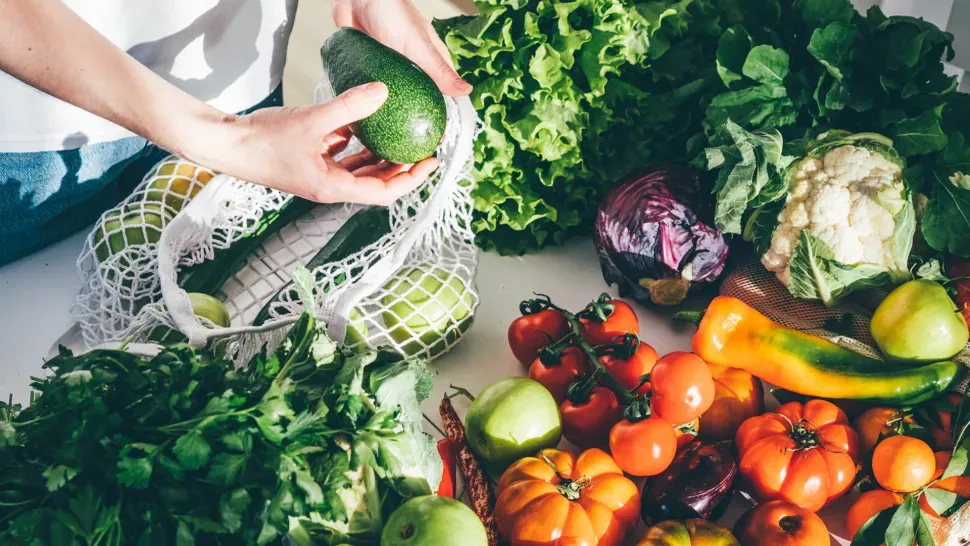Which meals help to strengthen the immune system?
Can particular meals help to strengthen your immune system? We look at what to eat to keep healthy and avoid sickness.
 |
| Which meals help to strengthen the immune system? |
Can some meals help the immune system? You're not alone if this notion has ever occurred to you. We all know the routine when it comes to infection prevention. Hands should be completely washed. Clean the surfaces. If you're not feeling well, stay at home. However, many of us are unsure of what to consume to keep our bodies from being ill.
It's all too easy to fall for food companies' marketing ploys. After all, it's reassuring to believe that there's a single superfood or supplement that may boost our immunity and fix all of our health issues. But it's much more complicated than that in reality.
It's true that certain vitamins can help our immune systems function better. Our bodies, on the other hand, are complex machinery with sophisticated requirements. Following a healthy, well-balanced diet may be far more beneficial to our health than taking vitamin supplements. So, if you're curious about whether some meals can genuinely help your immune system, keep reading. We'll talk about what to eat and how to eat in order to stay fit and healthy.
Fruits
One of the most nutrient-dense dietary groups is fruits. They can help strengthen your immune system by providing vitamins, minerals, and a variety of biologically active chemicals. Every fruit has something beneficial to your health and well-being to offer. Include a wide variety of vegetables in your diet to reap the greatest benefits.
However, some fruits may have more powerful immunoprotective qualities than others. Citrus fruits, such as oranges, lemons, and limes, are excellent examples of immune-boosting foods. They're well-known for being high in vitamin C, a nutrient that's commonly utilized to treat viral and bacterial illnesses. But that isn't the only ingredient that makes them so powerful. Citrus fruits, particularly hesperidin, are high in flavonoids.
Hesperidin is an antioxidant that helps to combat inflammation and respiratory infections. According to a study published in Frontiers of Immunology, drinking citrus fruit juice on a regular basis can boost the number of infection-fighting white blood cells while lowering inflammatory indicators in the body.
Berries are another fruit family that has been linked to a stronger immune system. Berries have been found to have antioxidant, ant mutagenic, antibacterial, anti-inflammatory, and neuroprotective properties in numerous studies.
Vegetables
Including more vegetables in your diet is one of the best strategies to strengthen your immune system. This dietary group, like fruits, provides a healthy dosage of vitamins, minerals, and phytonutrients. They're also high in fiber and prebiotics, which are substances that nourish the healthy bacteria in our stomach. Keeping our gut health in check will have a positive effect on our immune responses. Include a variety of vegetables in your diet to increase your chances of being infection-free.
Red bell and chili peppers are high in vitamin C, nearly as much as citrus fruits. They also contain capsaicin, an alkaloid. Capsaicin has excellent antioxidant and anti-inflammatory effects, according to a review published in Critical Reviews in Food Science and Nutrition, and hence has the potential clinical usefulness for pain relief, cancer prevention, and weight loss.
 |
Which meals help to strengthen the immune system?
|
Broccoli, cabbage, cauliflower, and Brussel sprouts are examples of cruciferous vegetables that can help your immune system. They're high in vitamin C and E, as well as glucosinolates, which are plant chemicals. Glucosinolates have been demonstrated to protect against a variety of cancers, including breast, brain, blood, bone, colon, gastric, liver, lung, oral, pancreatic, and prostate cancers, according to the Molecules journal.
Broccoli is another nutritious vegetable that might help your immune system. It's high in sulforaphane and quercetin, as well as a variety of vitamins, polyphenols, and glucosinolates. Sulforaphane is implicated in the detoxification and neutralization of chemical carcinogens and free radicals, according to a review published in Photochemistry Reviews. Quercetin is also an excellent antioxidant, anti-allergic, and antiviral agent.
Green leafy vegetables like kale, lettuce, and spinach should be given special attention. Spinach is one of the healthiest veggies available. Its antioxidant, anti-cancer, anti-inflammatory, hypoglycemic, and cholesterol-lowering properties have been proven in numerous research. It has a good amount of vitamins, minerals, and phytonutrients, including lutein, a carotenoid. Lutein has been found to promote antibody production and fight bacterial infections, according to a review published in the Food and Chemical Toxicology journal.
Mushrooms
The immune-boosting effects of mushrooms are becoming increasingly popular. This food group is high in selenium and B vitamins, both of which are essential for our immune system's health. According to the Journal of Autoimmunity, mushrooms contain a variety of highly specialized immunomodulatory and anti-cancer proteins.
Although several varieties of mushrooms are helpful to human health, shiitake mushrooms have recently received a lot of attention. Shiitake mushroom consumption enhances white blood cell and antibody formation in the body, according to the Journal of the American College of Nutrition.
 |
| Which meals help to strengthen the immune system? |
Fermented foods
Fermented foods and beverages have a long tradition. For a variety of reasons, they were among the first processed foods ingested by humans. Fermentation extends the shelf life, ensures food safety, and enhances the flavor of foods like yoghurt, pickles, sauerkraut, and kimchi. It also improves their nutritional value.
Many fermented foods contain probiotics, which are beneficial living bacteria strains. According to a study published in the Food Control journal, probiotics can boost immune system performance by raising natural killer cell toxicity, decreasing the generation of pro-inflammatory cytokines, and increasing white blood cell count.
Seafood
When it comes to immune-boosting foods, fish may not be the first item that comes to mind. However, this culinary category has a lot to offer. Omega-3 fatty acids, melatonin, tryptophan, and polyamines are all abundant in oily fish. Regular fish eating, according to a review published in Frontiers in Nutrition, can improve gut health and reduce the chance of developing inflammatory diseases like rheumatoid arthritis and psoriasis.
Shellfish, such as shrimp, lobsters, oysters, mussels, scallops, clams, crabs, krill, and snails, are high in immune-boosting bioactive peptides, antioxidants, vitamins, and minerals. Oysters are one of the best sources of zinc, which has been linked to improved immunological function.
 |
| Which meals help to strengthen the immune system? |
Spices and condiments
Spices and condiments are fantastic for adding flavor to dishes, but that's not all they're good for.
Garlic is an excellent example of a food that can help to strengthen the immune system. Garlic appears to increase the formation and control the activity of white blood cells, cytokines, and immunoglobulins, according to a meta-analysis published in the Journal of Nutrition. Regular ingestion can help treat and prevent respiratory infections, gastrointestinal ulcers, and possibly cancer.
 |
Which meals help to strengthen the immune system?
|
Another example is ginger. Ginger contains anti-inflammatory, ant oxidative, and anticancer properties, according to the International Journal of Preventive Medicine.
Furthermore, black pepper may help to strengthen the immune system. It has long been used as a food preservative due to its antibacterial qualities. It contains peperone, a substance with multiple health advantages, according to a review published in the Phototherapy Research journal.
Turmeric's immunomodulatory qualities have also been intensively studied in recent years by experts. Cur cumin, the main active ingredient in turmeric, has been shown in recent research to have antioxidant, anti-inflammatory, and immune-regulatory effects, as well as the ability to reduce the risk of numerous types of cancer.
HOW DO I INCLUDE IMMUNE-BOOSTING FOODS IN A HEALTHY DIET?
Many foods can help your immune system, but how can you make sure you're getting enough of them in your diet?
To begin, concentrate on eating whole foods and preparing from scratch. Also, stay away from highly processed foods like packaged bread, microwave meals, and breakfast cereals, which may appear to be nutritious but are devoid of immune-boosting elements. If you're hungry, citrus fruits and berries are good choices. When it comes to larger meals, make sure to include plenty of veggies, mushrooms, fish, shellfish, and fermented foods. Also play around with spices and condiments.
It's also important to avoid destroying immune-boosting substances during the cooking process. Fruits and vegetables, for example, are heat sensitive and should not be overcooked. Stick to heating and moderate processing instead. According to a study published in Food Science and Biotechnology, prolonged boiling, frying, and baking can lower vitamin C, A, D, E, and K levels, as well as minerals including potassium, magnesium, sodium, and calcium. When broccoli is boiled, it can lose up to 50% of its vitamin C content.
OTHER MEANS OF IMPROVING THE IMMUNE SYSTEM
Increase your physical activity levels
Being more active is without a doubt one of the best things you can do for your physical and mental health. It can also help to strengthen your immune system. Exercise intensity and duration are connected to the functioning of different immune system components, according to a report published in the Nutrition journal.
Researchers from the Sports Medicine journal combined the findings of several research to find that higher levels of habitual physical exercise are linked to a 31% lower chance of developing an infectious disease and a 37% lower risk of dying from it.
Prioritize quality sleep
Maintaining proper sleep hygiene can improve your quality of life significantly. However, getting enough sleep is also crucial for immunity. According to a study published in the Annals of the New York Academy of Sciences, a good night's sleep helps to balance the levels of hormones and cytokines that regulate inflammatory reactions in the body.
Some animal studies have also found that during infection, interactions between immune signaling molecules and brain neurochemicals increase dramatically, implying that we sleep differently while sick. Researchers believe that sleeping differently during an infection aids our bodies' recovery.
Keep your stress levels under control
Stress in little doses can help us endure dangerous situations. When stress becomes persistent, though, it can negatively effect our physical health.
Researchers suggest in an article published in the Brain and Behavior journal that prolonged stress affects immune system signals and raises inflammation levels in the body. A growing body of evidence suggests that stress-reduction strategies have a direct impact on our infection susceptibility. Multiple studies have found that mindfulness meditation can reduce inflammatory indicators and improve immunological signaling.











0 Comments